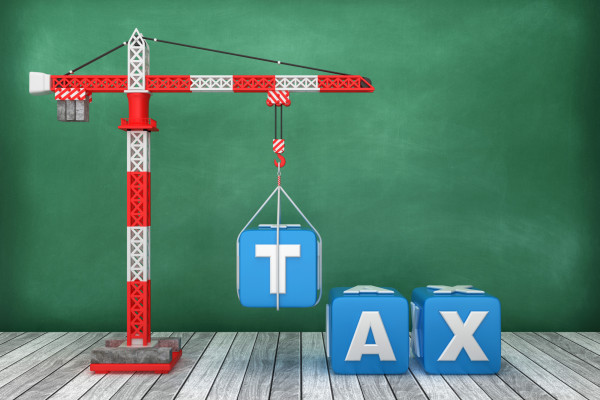Complete Guide to the Construction Industry Scheme
The CIS (Construction Industry Scheme) is HMRC’s set of regulations for the taxation of building subcontractors. The scheme is designed to make sure that the right amount of tax is collected on subcontractors’ earnings from construction work. CIS is mainly based on monthly payments (like PAYE) and so avoids hefty end-of-year tax bills.
What is the CIS scheme?
“The scheme sets out the rules for how payments to subcontractors for construction work must be handled by contractors in the construction industry.”
Construction Industry Scheme: a guide for contractors and subcontractors (CIS 340)
CIS dates back to 1971 and is designed to stop perceived tax evasion by construction workers. Contractors and subcontractors need to be aware of their responsibilities under the scheme, and to follow the rules to avoid falling foul of HMRC.
At Perrys Chartered Accountants, we provide expert accounting advice on CIS, and we welcome enquiries on helping you navigate the complexities of the scheme.
Arrange your FREE initial consultation on CIS now by calling 0800 0191 451 or by sending us your details.
Construction Industry Scheme 2021 updates
First of all, we’ll jump ahead to recent changes in CIS rules. Contractors and subcontractors need to know about these changes as a matter of priority.
VAT Reverse Charge
From March 1 2021 VAT-registered subcontractors supplying qualifying services to other construction industry contractors, must show, but no longer charge, the correct rate of VAT on your invoices. It becomes the responsibility of the contractor to account for VAT.
Draft finance bill to tackle abuse
November 2020 saw publication of a draft finance bill designed to deal with abuse of CIS. The amendments cover a range of issues including penalties for supplying incorrect information.
Our tax experts can guide you through all CIS issues including VAT reverse charges and CIS advice for company directors, as well as the latest updates.
What is a subcontractor?
A subcontractor is defined as any business that undertakes construction work for a contractor. A subcontractor can be a limited company, a partnership or a sole trader/self-employed individual. Under CIS rules subcontractors need to register with HMRC for the CIS scheme before they start working in construction.
What is a contractor?
A contractor is a business – limited company, partnership or sole trader – that pays subcontractors for construction work. It is perfectly possible to be a contractor and a subcontractor if, for example, as a subcontractor you appoint another subcontractor to carry out part of the work you have undertaken.
Is a private individual a contractor?
No a private individual is not a contractor. CIS excludes private individuals who are building or extending their homes.
How do you register for CIS?
Sole traders can register via the Government Gateway as long as they are already registered for self-assessment. Limited companies and partnerships need to register using the relevant CIS form. Perrys can help you through the registration process.
What are the obligations of contractors under CIS?
It is the responsibility of contractors to verify whether the subcontractors they appoint are registered under CIS. That’s done by contacting HMRC to find out whether the subcontractor is registered. HMRC will then tell the contractor the rate of deductions which need to be applied to payments.
The exception to the rule is that there is no need to contact HMRC if the subcontractor has been paid by the contractor under CIS rules within the current tax year, or in the two previous tax years.
Contractors are obliged to submit a monthly return detailing all payments made to each subcontractor in the preceding month. Returns have to be sent in within 14 days of the end of the month. HMRC also needs to be notified if no return is due.
CIS tax
HMRC will tell contractors how much tax to deduct from each subcontractor. Most deductions will be at 20% excluding VAT and various costs including materials, fuel and equipment hire. (See also details on VAT reverse charges for contractors.) However, if a subcontractor is not CIS registered, the rate will be 30%.
There is an important exception for subcontractors who have a solid record of tax and NI payments and who meet certain turnover thresholds. If HMRC grants Gross Payment Status, the subcontractor’s tax payments are determined by their self-assessment tax return and any corporation tax due. No deductions need to made by the contractor.
CIS deductions – how are they paid?
When contractors register for CIS, HMRC sets up a CIS payment scheme. Contractors can then file monthly returns using HMRC’s online service or commercial CIS software including systems from Sage and Xero. Payments after deductions are made to subcontractors in the normal way.
What work is covered by CIS?
In keeping with the aim of ensuring the right amount if tax is paid in the construction industry, CIS has very broad coverage of the types of work involved in building projects.
The list of activities includes site preparation, foundations, demolition, bricklaying, roofing, repairs, decorating and installation of services for heating, lighting, power and water.
What work is not covered by CIS?
CIS does not apply for architects and surveyors, carpet fitting, delivery costs and any on site work that is very clearly not construction work, such as an on site canteen. In other words, contractors and subcontractors can expect virtually all of their construction work to fall under CIS rules.
What are CIS penalties?
HMRC has a range of penalties and fines for non-compliance with CIS regulations, including a fixed penalty of £100 for contractors who do not submit a monthly return on time, even of it is only one day late.
If the return is two months late, the penalty doubles. Later returns incur penalties based on the greater of £300 or 5% of the deductions shown on the return. There is also penalty of up to £3,000 for contractors who are unable to show records to HMRC when asked to do so, or who are guilty of providing false information.
How do I reclaim CIS overpayments?
With the complexities of CIS, tax and NI deductions can quite easily be incorrect, leaving subcontractors out of pocket. Subcontractors depend on contractors submitting accurate figures and keeping records, which they do not always do. Situations become more complicated if a contractor goes out of business, or even passes away, during the tax year. There can also be uncertainty over which expenses are eligible.
With many years’ experience of the intricacies of CIS, Perrys Chartered Accountants will identify any overpayments and ensure that you can reclaim in full all monies due.
CIS advice from Perrys Chartered Accountants
To make sure you are following the CIS rules and that you are reclaiming all the refunds you can, talk to our CIS experts without delay.






